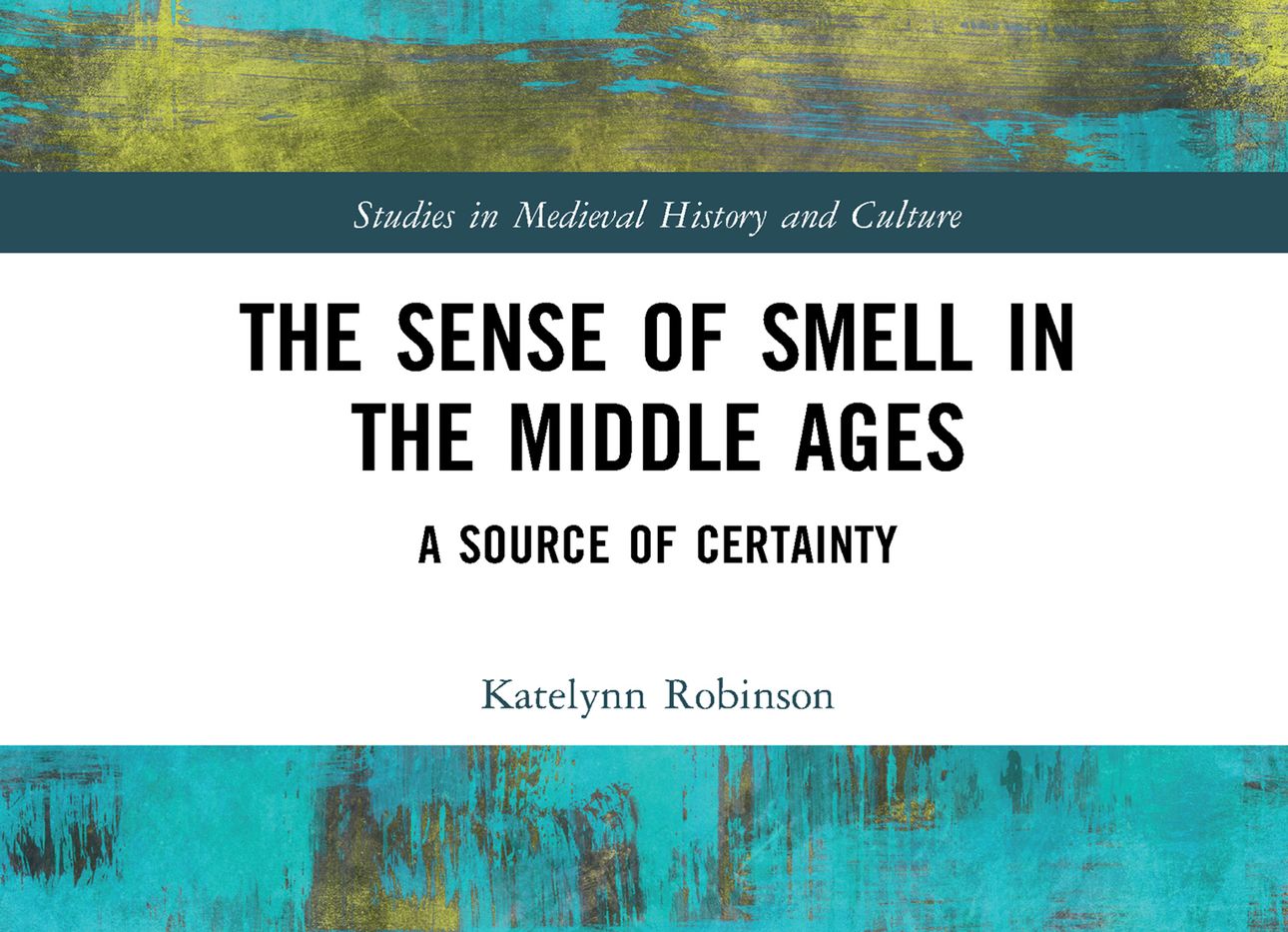
Dr. Katelynn Robinson Unpacks the Role of Odors in the Middle Ages
How did people in the Middle Ages think about smells? It’s a question that Dr. Katelynn Robinson avidly explores in her ongoing research (which includes Visual Odors, a website she created to trace how scents were depicted in medieval European art) and her book, The Sense of Smell in the Middle Ages: A Source of Certainty (Routledge), out next week in paperback. It’s the first comprehensive investigation of the period’s olfactory understanding, which Dr. Robinson compiled by reading Latin texts produced between the 11th and 15th centuries—material that’s largely untranslated and unedited by modern scholars. Wading through writings by academics and doctors, she learned about the overarching factors—including Greek and Arabic studies, philosophical and medical texts, and pious authors who imbued the information with spiritual meaning—that contributed to popular opinions of odors and how they played out in everyday life.
“Smell was an important source of knowledge about the world during the medieval period,” Dr. Robinson says. “That seems pretty obvious, but scholarship on the sense, from ancient to modern times, has been hampered by the idea that smell is animalistic, and [not so important] for more evolved humans—and that’s not true at all. I’m trying to rectify that.” We recently spoke with the author about some of the aromas that defined the era, and the connotations associated with them.
You’ve studied how smell was viewed in medicine, the built environment, and religion during the Middle Ages. What specifically did specialists in these fields believe?
Medical experts thought that odors were an indicator, and also a preventative, for epidemic diseases. They believed that rotten particles were getting into the air—released by things such as stagnant water, trash, sewage, and human and animal corpses—corrupting it, and making people sick. They simultaneously thought that odors could fend off ailments: If you used a “good odor,” you could clean the air, kind of like using an air freshener. People would burn herbs and spices in their fireplaces to purify the atmosphere when there was a plague, in the hopes that they wouldn’t fall ill. They’d also carry something good-smelling with them when they went outside, like a nosegay, [a sweet-smelling bunch of flowers], or pomanders, [wood or metal balls that were scented with] expensive, often imported perfumes. If you couldn’t afford those indulgences, medical texts advised carrying bread soaked in vinegar. They believed its strong stench would override the bad smells that caused epidemic diseases.
It seems like a lot of medieval conceptions about smell stem from an attempt to prevent illness. Were there legal efforts to keep fetid, potentially disease-causing odors out of densely populated areas?
Definitely. If somebody caused a bad smell, a neighbor could complain or stop it by issuing a clean-up order. City-wide rules were enacted, too. For example, the slaughter of large animals was banned in late medieval London because the butcher shops caused so much mess and so many bad smells. Butcher shops, tanners, and leather makers were usually located on the outskirts of town because they were so stinky.
Were there any good smells during the Middle Ages?
If you needed to locate a bakery, it’d be fairly easy—entire streets were full of bakers, emitting the scent of bread cooking in their ovens. There were also spice markets and apothecaries. In fact, early medieval Constantinople mandated that spice markets be in a particular location in the city, so that the aroma of the spices would drift into churches—and also, not coincidentally, into the imperial palace. Incense was used in many church rituals. Every religious person, including priests, monks, and nuns, must’ve smelled like incense, because the odor surely permeated their clothing and hair. You’d know who they were by the way that they smelled.
It’s fascinating how olfactory conventions like that differ from the ways we think about the sense today.
The number one thing that people need to understand in the history of science is that science is culturally determined. That’s something that isn’t really acknowledged as much as it should be. Just like modern science no longer accepts the idea that odors corrupt the air and cause epidemic diseases, future scientists will find out that some of our [current] accepted scientific truths are not actually correct. We need to be aware that science is a product of human culture, and that it changes over time.